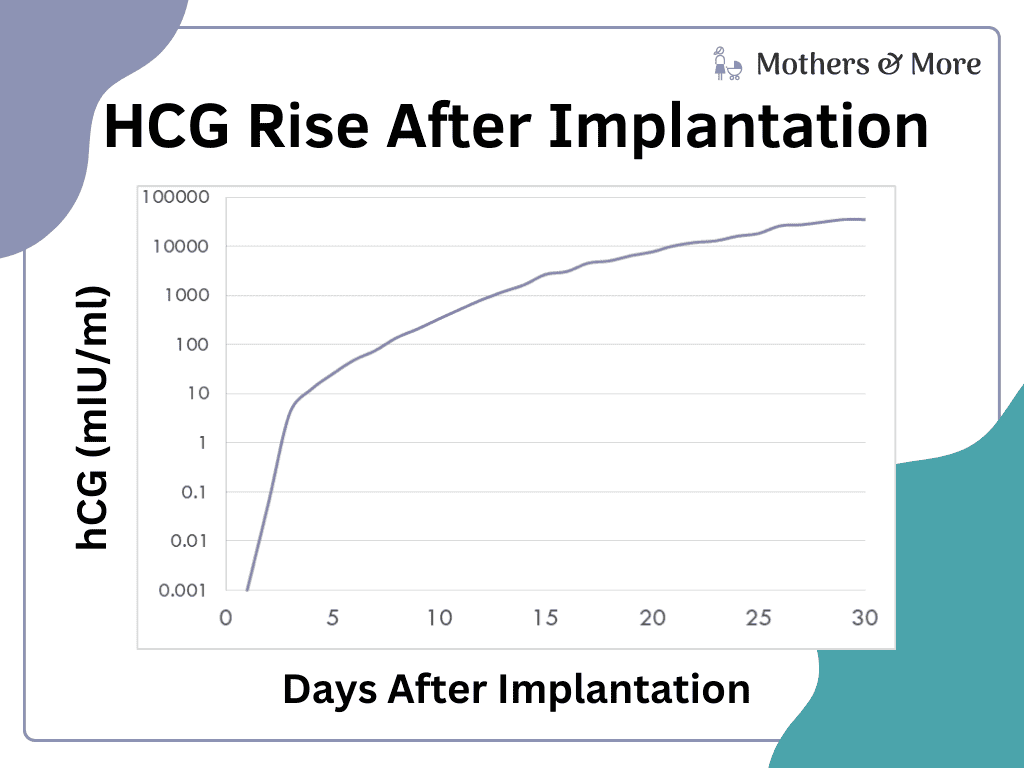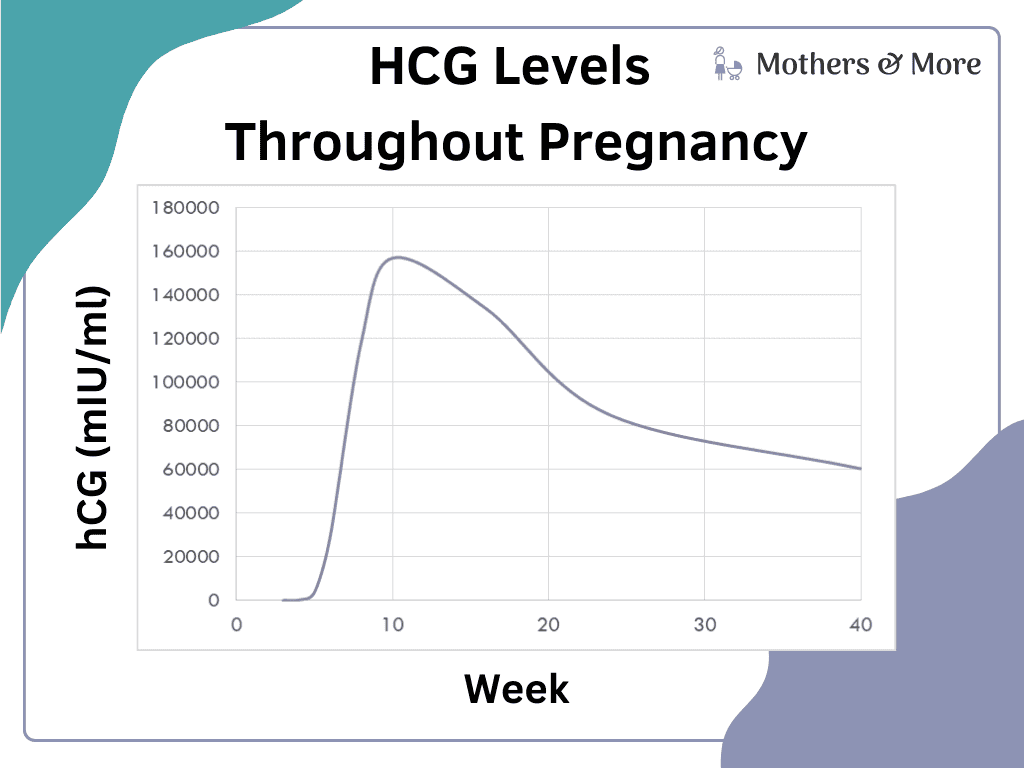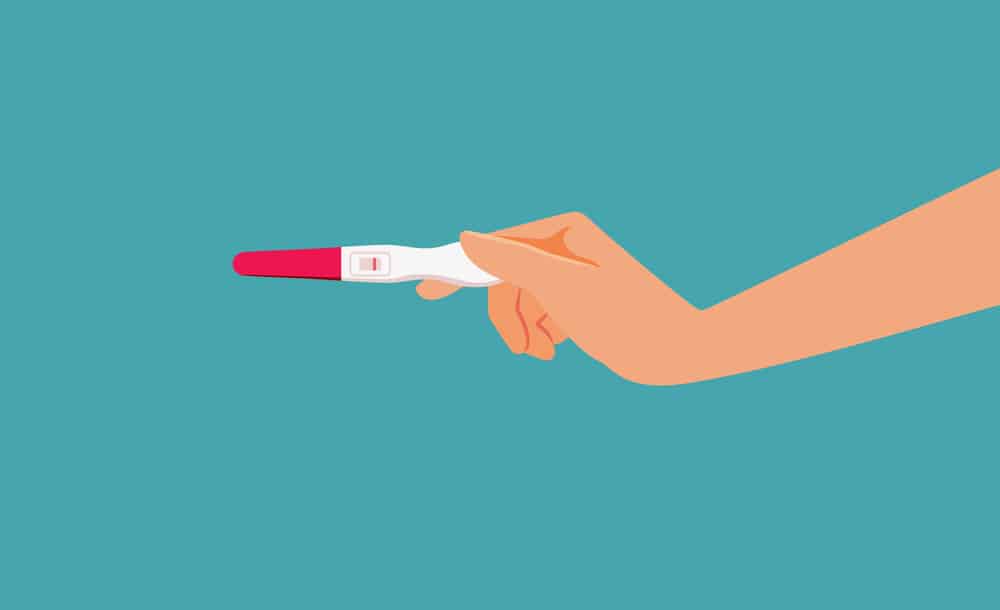If you’re trying to conceive, you’ve probably heard about human chorionic gonadotropin, or hCG. This tiny but mighty hormone will cause most of your first-trimester symptoms. Along with two pink lines on your pregnancy test!
After tracking your cycle closely, you may have pinpointed your ovulation and implantation. But how long after implantation does hCG rise, and when can you pee on a stick?
Let’s check out everything you need to know about this incredible hormone and what it does during your first few weeks of pregnancy.
When Do HCG Levels Start to Rise After Implantation?

Your hCG levels will start to increase immediately after implantation. However, the rise won’t be detectable immediately, and the time to detection will differ for every woman.
This is because there’s enormous variability in the amount of the hormone people naturally have in their bodies.
So, a few women with high baseline levels might see a faint line on a pregnancy test after only two days. But most won’t experience a detectable increase for between 6 and 12 days.
Blood tests are slightly more sensitive than urine tests. They can usually detect a rise just 4 to 5 days after implantation.
Why Does HCG Rise After Implantation?
After fertilization, your egg will attach to the wall of your uterus (implantation). Then it will start producing hCG.
This pregnancy hormone will trigger an increase in estrogen and progesterone production. These strengthen your endometrium and prevent the shedding of your uterine lining (menstruation). Essentially, this means they stop your period.
The sudden increase in these hormones will also bring on early pregnancy symptoms like nausea, fatigue, and sore breasts.
How Fast Should HCG Rise After Implantation?
The standard advice is that your hCG levels should double every 48 hours. But it’s a bit more complicated than this.
In the first four weeks of your pregnancy, your concentration of hCG will increase on a curve. This means that in the first three days, it will more than double every 24 hours. Then, the rate of increase will slow, doubling between 24 and 72 hours.
Again, this varies for every woman, so yours may increase slightly faster or slower.
After four weeks, the concentration will continue to increase but at a slower rate. It’ll peak during week 10. Then drop quite dramatically and level off in your third trimester.
How Long After Implantation Will You Test Positive?
The absolute earliest time you can test positive is 48 hours after implantation. This is if you’re using one of the most sensitive types of home pregnancy tests and your hCG levels are naturally high.
For most women, though, two days is too soon. The concentration of the hormone in urine simply won’t be high enough for detection. This can lead to disappointment, stress, and false negative results.
To avoid this, it’s best to wait until 6 to 12 days after implantation before testing. This is around the day your period is due or 14 days past ovulation (DPO).
Can HCG Rise Too Fast?
HCG levels in the first few weeks after implantation are highly variable. Large increases are usually good and shouldn’t be a source of anxiety. They may even be a sign that you are having twins or triplets.
However, if the rapid increase continues, it can indicate a molar pregnancy or Gestational trophoblastic disease (GTD). This is a rare condition where the cells that should develop into your placenta form tumors or fluid-filled sacs instead.
Unfortunately, a molar pregnancy isn’t viable. If you experience one, your doctor will explain treatment options, and you’ll likely need a surgical procedure to remove the abnormal tissue.
High hCG levels can also be a marker for Down’s Syndrome.
What if HCG Rises Slowly?
If your hCG levels are rising slowly, it could indicate a problem with your pregnancy. Doctors usually become concerned if it’s not doubling every 72 hours.
Potential causes of slow-rising include:
Early Miscarriage
If the embryo or placenta isn’t developing properly, it won’t produce as much hCG. Sadly, this will result in a miscarriage.
Symptoms of early pregnancy loss include:
- Vaginal bleeding
- Cramping
- Spotting
- Abdominal cramps
- A gush of fluid from your vagina
- Passing tissue from your vagina
However, it’s also possible that you’ll have no symptoms at all.
If you experience an early loss, support is available online.
Blighted Ovum
A blighted ovum is a condition where a fertilized egg triggers the production of a placenta and gestational sac, but the egg itself never develops into an embryo. This is often the result of a poor-quality sperm or egg or an issue with cell division. There is nothing you can do to prevent it.
Sadly, a blighted ovum will never result in a viable pregnancy. Although uncommon, the condition is responsible for around 50% of all miscarriages.
Sometimes a blighted ovum will bring symptoms like:
- Minor abdominal cramps
- Spotting
- Light vaginal bleeding
However, in most cases, you’ll have no symptoms and won’t find out until your first ultrasound.
Fortunately, it’s rare to experience a blighted ovum more than once. Most women who have one will go on to conceive a healthy baby.
Ectopic Pregnancy
An ectopic pregnancy occurs when the fertilized egg implants anywhere outside the uterus. This could be in the fallopian tube, ovary, C-section scar, or abdomen.
Unfortunately, ectopic pregnancies are not viable as the embryo will lack the space and environment needed to grow.
Symptoms include:
- Sharp pain in the abdomen or pelvis
- Shoulder pain
- Bright red vaginal bleeding
- Weakness or dizziness
Ectopic pregnancies are dangerous, as they can rupture one of your fallopian tubes. This causes bleeding and, potentially, death. If you’re experiencing any of the above symptoms, seek medical treatment immediately.

Should You Check Your HCG Levels Every Day?
Many women try tracking their hCG levels by peeing on a stick daily. However, the concentrations aren’t something that you can accurately measure with urine tests. Small changes in the amount you’ve been drinking, the time since your last pee, and how you take the tests can all affect the results.
Seeing a lighter line than the day before can be a huge source of stress and anxiety. But it may just mean your pee was slightly more diluted.
Regular blood tests are the only way to track your hormone levels effectively. This isn’t something that’s available to everyone. But your doctor may offer them if you have a history of infertility or recurrent miscarriages.
FAQs
What Are the Signs That Implantation Has Happened?
The symptoms of implantation include:
- Light pink or brown spotting, known as implantation bleeding
- Abdominal cramps
- Thicker cervical mucus
- Sore or tender breasts
- A 1-day drop in your basal body temperature
- Nausea
- Bloating
- Headaches
Can HCG Rise Before Implantation?
Everybody, including men, has small amounts of the hormone in their bodies. However, the levels should only rise after implantation and during the first trimester of pregnancy.
An increase seen before implantation was due to occur, likely means you ovulated sooner than you thought.
Can HCG Rise During a Miscarriage?
Depending on the cause of the miscarriage, hCG levels can continue to rise throughout the first trimester. However, this is normally at a slower rate. So levels won’t double every 48 to 72 hours, indicating a problem.




